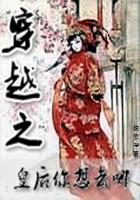Who again was his closest ally? And what was the policy of that ally? The subjects of James, it is true, did not know half the infamy of their sovereign. They did not know, as we know, that, while he was lecturing them on the blessings of equal toleration, he was constantly congratulating his good brother Lewis on the success of that intolerant policy which had turned the fairest tracts of France into deserts, and driven into exile myriads of the most peaceable, industrious, and skilful artisans in the world. But the English did know that the two princes were bound together in the closest union. They saw their sovereign with toleration on his lips, separating himself from those states which had first set the example of toleration, and connecting himself by the strongest ties with the most faithless and merciless persecutor who could then be found on any continental throne.
By what advice again was James guided? Who were the persons in whom he placed the greatest confidence, and who took the warmest interest in his schemes? The ambassador of France, the Nuncio of Rome, and Father Petre the Jesuit. And is not this enough to prove that the establishment of equal toleration was not his plan? Was Lewis for toleration? Was the Vatican for toleration?
Was the order of Jesuits for toleration? We know that the liberal professions of James were highly approved by those very governments, by those very societies, whose theory and practice it notoriously was to keep no faith with heretics and to give no quarter to heretics. And are we, in order to save James's reputation for sincerity, to believe that all at once those governments and those societies had changed their nature, had discovered the criminality of all their former conduct, had adopted principles far more liberal than those of Locke, of Leighton, or of Tillotson? Which is the more probable supposition, that the King who had revoked the edict of Nantes, the Pope under whose sanction the Inquisition was then imprisoning and burning, the religious order which, in every controversy in which it had ever been engaged, had called in the aid either of the magistrate or of the assassin, should have become as thorough-going friends to religious liberty as Dr.
Franklin and Mr. Jefferson, or that a Jesuit-ridden bigot should be induced to dissemble for the good of the Church ?
The game which the Jesuits were playing was no new game. A hundred years before they had preached up political freedom, just as they were now preaching up religious freedom. They had tried to raise the republicans against Henry the Fourth and Elizabeth, just as they were now trying to raise the Protestant Dissenters against the Established Church. In the sixteenth century, the tools of Philip the Second were constantly preaching doctrines that bordered on Jacobinism, constantly insisting on the right of the people to cashier kings, and of every private citizen to plunge his dagger into the heart of a wicked ruler. In the seventeenth century, the persecutors of the Huguenots were crying out against the tyranny of the Established Church of England, and vindicating with the utmost fervour the right of every man to adore God after his own fashion. In both cases they were alike insincere. In both cases the fool who had trusted them would have found himself miserably duped. A good and wise man would doubtless disapprove of the arbitrary measures of Elizabeth. But would he have really served the interests of political liberty, if he had put faith in the professions of the Romish Casuists, joined their party, and taken a share in Northumberland's revolt, or in Babington's conspiracy? Would he not have been assisting to establish a far worse tyranny than that which he was trying to put down? In the same manner, a good and wise man would doubtless see very much to condemn in the conduct of the Church of England under the Stuarts. But was he therefore to join the King and the Catholics against that Church? And was it not plain that, by so doing, he would assist in setting up a spiritual despotism, compared with which the despotism of the Establishment was as a little finger to the loins, as a rod of whips to a rod of scorpions?
Lewis had a far stronger mind than James. He had at least an equally high sense of honour. He was in a much less degree the slave of his priests. His Protestant subjects had all the security for their rights of conscience which law and solemn compact could give. Had that security been found sufficient? And was not one such instance enough for one generation?
The plan of James seems to us perfectly intelligible. The toleration which, with the concurrence and applause of all the most cruel persecutors in Europe, he was offering to his people, was meant simply to divide them. This is the most obvious and vulgar of political artifices. We have seen it employed a hundred times within our own memory. At this moment we see the Carlists in France hallooing on the Extreme Left against the Centre Left.
Four years ago the same trick was practised in England. We heard old buyers and sellers of boroughs, men who had been seated in the House of Commons by the unsparing use of ejectments, and who had, through their whole lives, opposed every measure which tended to increase the power of the democracy, abusing the Reform Bill as not democratic enough, appealing to the labouring classes, execrating the tyranny of the ten-pound householders, and exchanging compliments and caresses with the most noted incendiaries of our time. The cry of universal toleration was employed by James, just as the cry of universal suffrage was lately employed by some veteran Tories. The object of the mock democrats of our time was to produce a conflict between the middle classes and the multitude, and thus to prevent all reform.
The object of James was to produce a conflict between the Church and the Protestant Dissenters, and thus to facilitate the victory of the Catholics over both.















